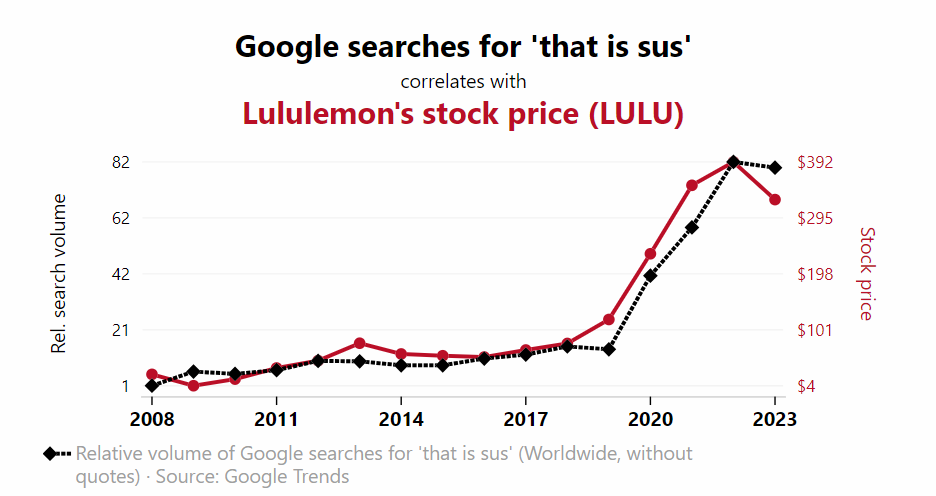AnthonyofBoston
Registered Member
Massive Bombshell! A 100% statistical correlation and scientific explanation for why the planet Mars can trigger stock market crashes. This paper lays out the 25 major stock market crashes and downturns in US history.The data shows a 100% correlation between such events and Mars position in relation to the sun

Before reading the content, it is important to take into account a recent study published in Nature Communications in March of 2024, roughly 5 years after this idea was first introduced to the public. In that study published in March of 2024, researchers discovered that Mars is exerting a gravitation pull on earth's tilt, exposing earth to warmer temperatures and more sunlight, all within a 2.4 million year cycle. I assert that this allows us to surmise that, even within smaller timeframes, Mars is still exerting a gravitational pull on earth's axial tilt, enough to raise temperatures and affect human behavior, even investor sentiment. Citing the fact of numerous studies that link irritability and negative mood states to warmer temperatures, I can establish an axiom. This perspective should help the reader move beyond the preconceived notion of absurdity and realize that this has scientific merit
This paper lays out the 25 major stock market crashes and downturns in US history.The data shows a 100% correlation between such events and Mars position in relation to earth. Every stock market crash and major stock downturn in US history has happened when Mars was orbiting behind the sun from earth’s point of view. When Mars is going further out from earth, it is also when Mars's gravity is puling Earth’s axial tilt towards the sun, possibly bringing warmer temperatures, which should affect investor sentiment most negatively, presuming that warmer temperatures relative to the mean affect cognitive function and trigger some variant of irritability or pessimism. There are studies that corroborate this dynamic between warmer temperatures and negative mood states. As Mars gets closer to earth, Mars’s gravity is puling earth’s axial tilt away from the sun, bringing presumably cooler temperatures, and less negative mood outcomes, which may explain why major stock market crashes never happen during that phase of Mars’s orbit
This paper was referenced by a Finnish theoretical physicist, Matti Pitknen. Here is his scholarly paper giving credence to the research about Mars influence on the Dow Jones -see pg 5
Here is more data regarding Mars and the Dow Jones

A 100% statistical correlation and scientific explanation for why the planet Mars can trigger stock market crashes.
This paper lays out the 25 major stock market crashes and downturns in US history.The data shows a 100% correlation between such events and Mars position in relation to earth. Every stock market crash and major stock downturn in US history has
www.academia.edu
Before reading the content, it is important to take into account a recent study published in Nature Communications in March of 2024, roughly 5 years after this idea was first introduced to the public. In that study published in March of 2024, researchers discovered that Mars is exerting a gravitation pull on earth's tilt, exposing earth to warmer temperatures and more sunlight, all within a 2.4 million year cycle. I assert that this allows us to surmise that, even within smaller timeframes, Mars is still exerting a gravitational pull on earth's axial tilt, enough to raise temperatures and affect human behavior, even investor sentiment. Citing the fact of numerous studies that link irritability and negative mood states to warmer temperatures, I can establish an axiom. This perspective should help the reader move beyond the preconceived notion of absurdity and realize that this has scientific merit
This paper lays out the 25 major stock market crashes and downturns in US history.The data shows a 100% correlation between such events and Mars position in relation to earth. Every stock market crash and major stock downturn in US history has happened when Mars was orbiting behind the sun from earth’s point of view. When Mars is going further out from earth, it is also when Mars's gravity is puling Earth’s axial tilt towards the sun, possibly bringing warmer temperatures, which should affect investor sentiment most negatively, presuming that warmer temperatures relative to the mean affect cognitive function and trigger some variant of irritability or pessimism. There are studies that corroborate this dynamic between warmer temperatures and negative mood states. As Mars gets closer to earth, Mars’s gravity is puling earth’s axial tilt away from the sun, bringing presumably cooler temperatures, and less negative mood outcomes, which may explain why major stock market crashes never happen during that phase of Mars’s orbit
This paper was referenced by a Finnish theoretical physicist, Matti Pitknen. Here is his scholarly paper giving credence to the research about Mars influence on the Dow Jones -see pg 5
Here is more data regarding Mars and the Dow Jones
Dow Jones percentage changes between 1896 and 2023, in correlation with the orbital phase of Mars.
Dow Jones percentage changes between 1896 and 2023, in correlation with the orbital phase of Mars. Please refer to this paper for context before analyzing the data below https://www.academia.edu/123648970 Below are the time-frames of when Mars was
www.academia.edu

